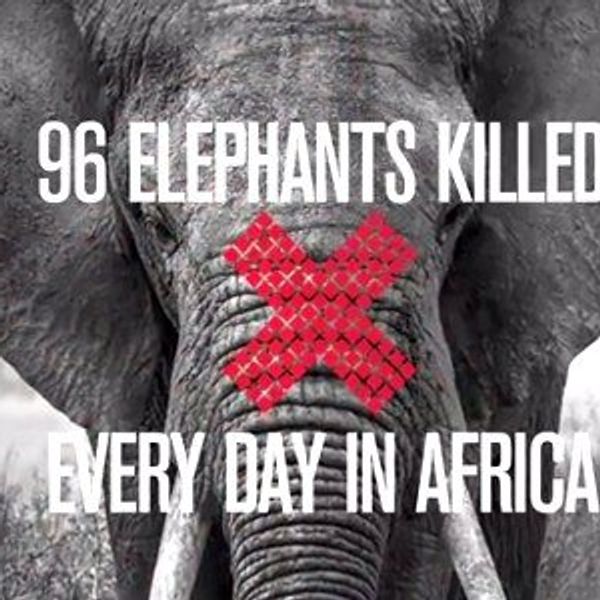Despite my love for animals, I am not a fan of zoos or aquariums. I have never been to a zoo and I do not approve of petting zoos at state fairs. I have been to Disney's Animal Kingdom, and I have listened to their lectures about their animals and why those animals are there. I agree with Disney's intent, but that does not mean I am changin gmy stance on zoos. I recently went to a really sad aquarium and I wish I could've rescued all of the animals. Granted the most of the captive animals were classified as "cannot release" by the government, but still- I do not like zoos or aquariums.
Innocent animals are being slaughtered. In February of 2014, a Danish zoo killed a perfectly healthy giraffe and then fed its carcass to the captive lions in front of a live audience, which included young children. Copenhagen Zoo had euthanized “Marius”, the young giraffe to avoid inbreeding. Bengt Holst, the scientific director at the Copenhagen Zoo told CNN reporters that their “...giraffes are part of an international breeding program, which has a purpose of ensuring a sound and healthy population of giraffes” and that sterilizing Marius “... he [would] take up space for more genetically valuable giraffes” (Naik and Gumuchian, n.p.). Cecil, a well-known male lion living on the Hwange Game Reserve in Zimbabwe, was lured away and killed illegally by a group of big game trophy-hunters on July 1, 2015. The death of Cecil was a big tragedy due to the fact that the thirteen year old lion has been the subject of research for over a decade with the Wildlife Unit of Oxford University in the United Kingdom. Cecil and Marius’s story is a common one among game reserves and zoos.
The first zoo was not actually built for the public. In 2400 BC, Shulgi the ruler of Ur, now present-day Southeast Iraq, started the first collection of exotic animals. In 1000 BC, Emperor Wen Wang of China later built a zoo to display his wealth and power. Named the “Garden of Intelligence”, the zoo spanned over 1500 acres and held animals from all over his empire, with the main attraction being the Giant Panda. The oldest zoo still in existence is the Tiergarten Schonbrunn built in 1752 for the imperial family in Vienna, Austria; it was opened up to the public in 1779 and is believed to be the first public zoo. The collection of wild animals has served many purposes throughout history since they first came into existence. The first zoos were built to display tremendous wealth and power, putting animals on display as if they were trophies to be gazed upon in reverence.
Animals are not trophies, nor should they be treated as such.
While the zoos in today’s society claim that their vocation is to serve science, conservation, and animal welfare, other members of the public would prefer to ban these institutions. Zoos and aquariums built for the purpose of entertainment should not be allowed to continue their malpractice because zoos cause detrimental effects on the animals by holding animals in unsuitable habitats, denying them of the life dictated by their genes, and trading the animals with other zoos as if they are baseball cards to satisfy display needs.
Zoos have detrimental effects on the health of captive animals. While zoos express a concern for the animals and their well-being, PETA believes that zoos are merely a “collection of interesting animals” rather than the havens they are thought to be (Carr). Zoos continue to capture wild animals to put on public display. In 1978, African elephants were listed as “threatened” under the United States Endangered Species Act. As of 2008, African elephants were reclassified as “vulnerable” as the world had seen an increase in their population size. In 2003, eleven African elephants were captured by the San Diego Wild Animal Park and Lowry Park Zoo, despite their E.P.A. listing of “threatened”.
Zoos are imprisoning animals who “want to be free”. According to Michelle Carr, PETA’s Action Team Coordinator, captive animals are “deprived of everything that is natural and important to them,”. The living conditions in zoos are anything but natural. Even the best artificial environment is no match for animals’ natural habitat. Confined to tight, barren, dismal enclosures, captive animals are denied their most basic needs and often begin to suffer from a common condition in imprisoned animals known as “zoochosis”. In 1992, Bill Travers, co-founder of the Born Free Organization, coined the term "zoochosis" to describe the odd, repetitive, compulsive behaviors associated with animals in captivity. Zoochosis can be characterized as many unnatural behaviors such as pacing, head bobbing, over-grooming, and self-mutilation. Abnormal aggressive behavior is a common and dangerous characteristic, where an animal's aggression is uncontrolled, in terms of intensity and frequency, or directed to the wrong individuals or objects. Abnormal aggressive behavior can be the result of overcrowding, isolation from companions or pressure from zoo visitors.
Of course zoo life would be ideal, if zoos did not inhumanely treat the animals and cause them to suffer from detrimental health problems, but society does not want certain species to go extinct. According to the Born Free Foundation in the United Kingdom, there are currently close to 5,624 species of vertebrate animals on the brink of extinction. World Wildlife Fund puts this in perspective with a detailed list that includes seventeen species of animals listed as “critically endangered” such as the Black Rhino and thirty-three species as “endangered”, which includes the Asian Elephant, and Bengal Tiger (n.p.). In 2014, the World Wildlife Fund, in collaboration with the London Zoological Society, published a study entitled “Living Planet Report 2014” that addressed the issue of species loss across the world by measuring trends in thousands of vertebrate species across the globe has shown a 52% decline from 1970 to 2010. In simpler terms, the number of animals, including amphibians, reptiles, birds, and fish, is half the size it was forty years ago. Habitat loss and exploitation through hunting and fishing are the main reasons for this drastic incline.
People- wake up and stop destroying our planet for the sake of the animals, and for the human race!





















